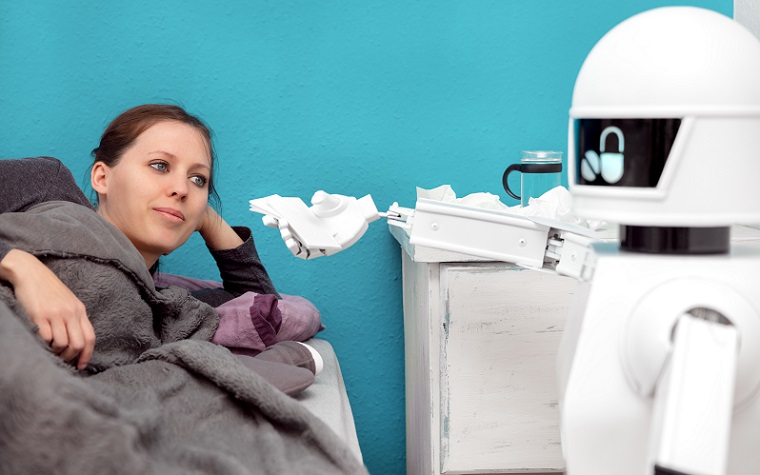by Bob Branco
“The robot will see you now.” Is this a phrase we will be hearing quite often in a medical office? I hope not. How can anyone believe that a robot can act as a psychiatrist? What I mean is, can a robot console you if you are troubled? Can a robot tell you that everything is going to be all right if you are on the brink of suicide? Can a robot prescribe medication? It seems like Dr. Joanne Pransky believes that these things are possible.

According to an article, Dr. Pransky points out that there will be therapeutic success for robotics, even though there’s nothing like the understanding of the human experience by a qualified human being. Robots can help to address psychiatric issues that a trained psychiatrist may not be able to address, even with traditional therapeutic methods. Really?
Dr. Pransky goes on to say that there are three groups who would benefit most from robotic therapy: the elderly, young people who spend most of their time online, and those who have no access to any form of behavioral health. Well, if someone has no access to any form of behavioral health, get it for him. No medical facility can deny a patient based on the Hippocratic Oath. Robots will supposedly fill gaps in psychiatric care left by humans.
People who are involved with robot psychiatry would like to use an example taken from BlabDroid in order to make the point. BlabDroid is a 2012 documentary created by Alex Reben at the MIT Media Lab for his Master’s thesis. Why should we use a robot from Blabdroid in order to solve mental and emotional problems? The human touch is very important, and always will be.
While it may be true that robots help some patients, can we please stop using the argument that humans make mistakes? No human being is perfect. To err is human. As for machines doing the work, imperfect humans program them.
None of us are perfect, yet we are expected to provide important service to other humans if we are qualified to do so. However, if a human can’t treat a patient, he shouldn’t be in psychiatry. If a human can’t perform surgery, he shouldn’t be a surgeon. If a human can’t cook a meal, he shouldn’t be a chef.
I understand the embarrassment that some people feel when telling strangers their troubles where robots may be useful. However, I’m not looking at this from a technological point of view, hoping that a robot’s lack of human identity will solve a patient’s problems. I’m looking at it from a humane point of view. A good, qualified, empathetic psychiatrist knows how to give personal advice. It doesn’t matter how technology is taking over. Abraham Maslow had a hierarchy of needs. We have safety needs, food needs, etc.
Machines are wonderful. I use them all the time. But guess what? They are impersonal.
About the Author
Robert T. Branco resides in New Bedford, Massachusetts, and is the author of five self-published books. He is a community organizer, tutors persons with visual impairments, has written columns for local and international organizations, and publishes a monthly online newsletter, The Consumer Vision. Bob’s website, with full information about his books, is http://www.dldbooks.com/robertbranco/.


